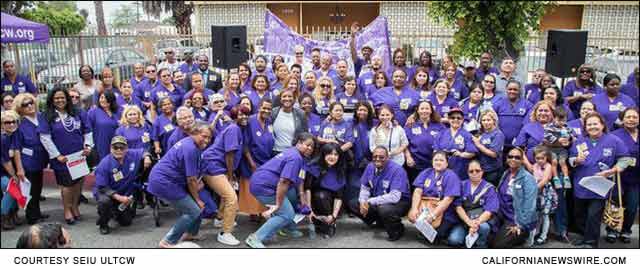SACRAMENTO, Calif. /California Newswire/ — Caregivers of those with disabilities are calling on the California State Legislature to support Assembly Bill 1380 to improve respite care accountability. Right now many vendors who contract with regional centers to provide the publicly funded service spend an absurd amount of money on administration costs for respite care instead of on the program itself. Testimony on this issue will be given during the first committee hearing on AB 1380 on Tuesday April 25, 2017, says SEIU Local 2015.

Respite services are temporary non-medical care and/or supervision provided to developmentally disabled clients through one of the 21 regional centers administered by the California Department of Developmental Services. The program helps to relieve family members from the constant, demanding responsibilities of providing care, giving them a few hours break each month.
“I was disappointed to learn how much money was being poured into the administration of the program when the people who use respite care need it the most, said In-Home Supportive Services Caregiver Olga Evans. “California needs to step in and put a stop to these public monies going into people’s pockets and ensure they’re being used for people’s care.”
Respite care is not a luxury, it is a necessity for people whose caregiving is an around-the-clock job. But while this is publicly funded program serves the most vulnerable population and is at risk of budget cuts, a recent statewide audit revealed that many respite care companies spend up to 30 percent of the money they receive from the state on administrative costs. They also found that many regional centers do not regularly conduct reviews of respite vendor files that they are required to do by state law to ensure that vendor information is accurate and complete.
To help make sure respite care providers are not spending state money egregiously, caregivers are backing AB 1380, which will establish a cap on respite agencies’ administrative costs to 15 percent, and require that at least 85 percent goes to direct service costs. Caregivers hope state legislators will vote in support of the bill so it can move on to the fiscal committee.
Follow the conversation: @SEIU2015 and http://www.seiu2015.org/







